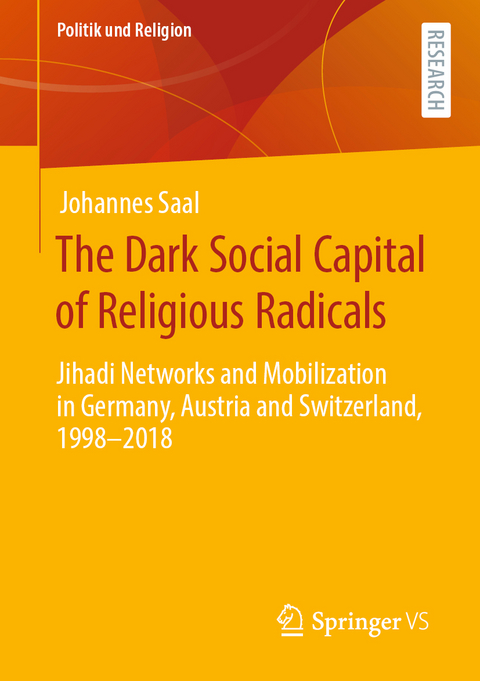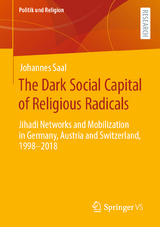The Dark Social Capital of Religious Radicals
Springer Fachmedien Wiesbaden GmbH (Verlag)
978-3-658-32841-2 (ISBN)
About the author Sociologist of religion and political scientist Dr. Johannes Saal is a research assistant at the Center for Religion, Economy and Politics (University of Lucerne).
Introduction.- Theory: The Dark Social Capital Of Religious Radicals.- Data Sources And Methods Of Data Analysis.- Socio-Demographic And Socio-Economic Backgrounds.- Dynamics Of Jihadi Networks.- Geographical Clusters.- Mobilizing Members.- Mobilizing Cohesion.- Mobilizing Funds And Charity.- Mobilizing Violence.- Conclusion.
"It is a timely and relevant piece of scholarship which, through the study of social elements at play in the process of radicalisation, offers a nuanced perspective of radicalisation as a social process and effectively demonstrates the transformative power of social capital within extremist groups. The book is a valuable addition to the literature on terrorism and radicalisation, contributing fresh insights and a new perspective by moving beyond traditional, security-focused narratives."(Lulie El-Ashry, Religion in Austria, Vol. 8, 2023)
“It is a timely and relevant piece of scholarship which, through the study of social elements at play in the process of radicalisation, offers a nuanced perspective of radicalisation as a social process and effectively demonstrates the transformative power of social capital within extremist groups. The book is a valuable addition to the literature on terrorism and radicalisation, contributing fresh insights and a new perspective by moving beyond traditional, security-focused narratives.”(Lulie El-Ashry, Religion in Austria, Vol. 8, 2023)
| Erscheinungsdatum | 06.05.2021 |
|---|---|
| Reihe/Serie | Politik und Religion |
| Zusatzinfo | XXII, 527 p. 50 illus. |
| Verlagsort | Wiesbaden |
| Sprache | englisch |
| Maße | 148 x 210 mm |
| Gewicht | 714 g |
| Themenwelt | Geisteswissenschaften ► Religion / Theologie ► Islam |
| Sozialwissenschaften ► Politik / Verwaltung ► Politische Systeme | |
| Schlagworte | Jihadism • Radicalisation • Social capital • social network analysis • terrorism |
| ISBN-10 | 3-658-32841-X / 365832841X |
| ISBN-13 | 978-3-658-32841-2 / 9783658328412 |
| Zustand | Neuware |
| Haben Sie eine Frage zum Produkt? |
aus dem Bereich




